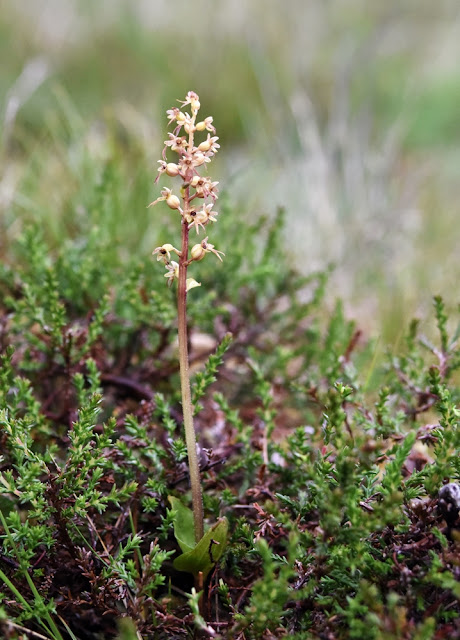 |
| A typical single plant of Lesser Twayblade, growing within a scattered group (out of shot) |
On the long walk out from the eagle eyrie in the previous post, Adam Ritchie spotted a group of Lesser Twayblade Listera cordata plants growing right in the middle of the path we followed. These plants are not too uncommon on the wet peaty moorlands like the one we were on, but they are very easily overlooked and hence probably very under-recorded. Well done Adam for noticing them. Simon and I had already walked right over them.
 |
| The flower spikes were a pale pink/brown colour and faded into the background heather they looked rather like dead stems of some other moorland plant |
This was an added bonus to an already great day out, but the light was poor by then as it was evening, with clouds gathering for big rain on the ensuing days. Nevertheless, Simon and I pulled our cameras out of our rucksacks and grabbed a few shots.
 |
| The twin leaves growing at the base of the stem, opposite and enfolding one another - the distinctive leaf pattern of Twayblades |
These plants tend to grow in loose groups because they are more commonly spread by runners. If they are successfully pollinated, that is usually by fungus gnats. There were probably more plants growing in the moor beside the track as the habitat was similar, but these plants were perhaps as noticeable as they ever can be - growing in the middle strip of heather, blaeberry and moss between the ruts of the path.
 |
| Simon gets down low for a macro shot of the twayblade |

No comments:
Post a Comment